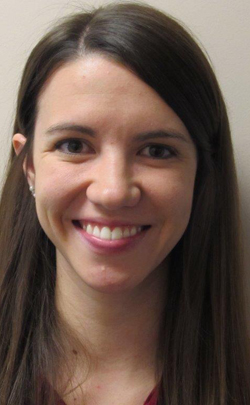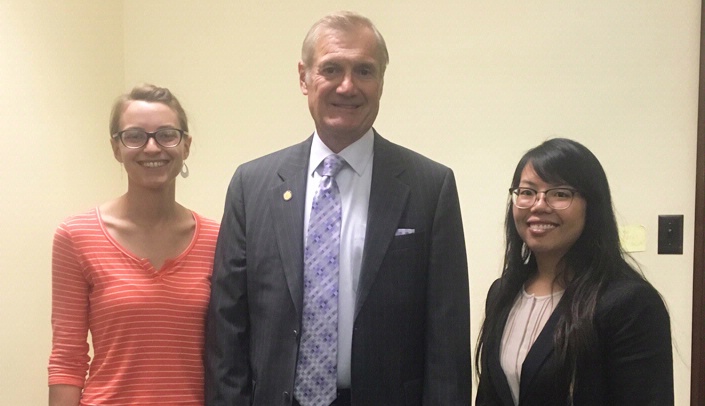Two sessions of the first-ever interprofessional rural rotation were completed this year with a focus on tobacco tax public policy.
 |
Caitlin Pleas Schneider |
Five students completed three-week rotations last spring and this fall in Columbus, Neb., under the supervision of Caitlin Pleas Schneider, coordinator for youth substance abuse prevention and environmental health, East Central District Health Department. Schneider is a 2014 graduate of the College of Public Health.
“Public health is centered around prevention and collaboration. This rotation allowed students to further their understanding of how important their individual roles are in the public health system and how they fit into the big picture. They discovered how to become an advocate for public health issues as they move forward in their careers,” Schneider said.
Students developed a survey in English and Spanish to evaluate attitudes about tobacco and determine what people thought about raising the tobacco tax and the age of smoking initiation from 18 to 21.
As a team, the students researched Nebraska’s tobacco policy and related legislation that was recently introduced, and consulted with experts in the field. They surveyed 154 Cargill employees during a health fair and also engaged in outreach activities that included educating primary school students about the dangerous health effects of tobacco use.
The sessions were funded by a $25,000 Rural Future Institute Teaching and Engagement Grant awarded to Patrik Johansson, M.D., associate professor of health promotion, social & behavioral health, and director of the Rural Health Education Network (RHEN).
The rotations broadened didactic and experiential rural population health educational opportunities for students across health professions educational programs at UNMC, said Dr. Johansson.
“I hope that interprofessional rural rotations rooted in public health can become a standing feature of the UNMC curriculum for students interested in rural health profession careers,” he said.
Representatives from six of UNMC’s colleges — allied health professions, dentistry, medicine, nursing, pharmacy and public health — developed curriculum for the rotation that met academic requirements for students in their respective discipline.
Kimberly Norman, experiential program coordinator, College of Pharmacy, was one of her college’s representatives on the planning committee.
“This rotation exposed UNMC students to a unique setting where they can garner an appreciation for and provide service to patients in a rural community. The interdisciplinary focus of this rotation highlights the strength of collaboration of a health care team as a key component to providing exceptional patient care,” she said.
